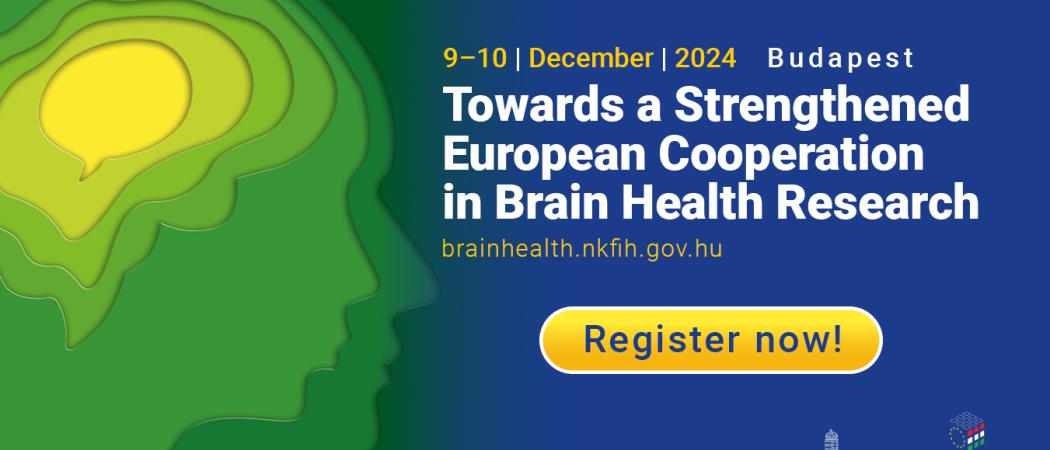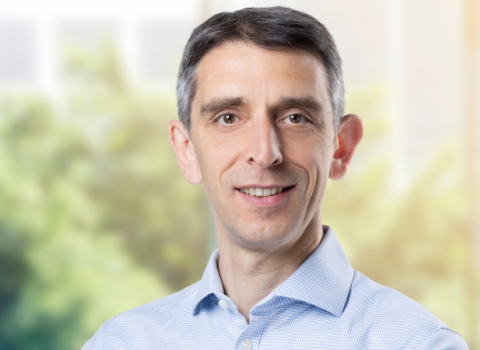Interdisciplinary cooperation is vital to addressing complex conditions that have widespread impact

Millions of Europeans of all ages are affected by brain-related health conditions, ranging from problems that can be cured with drugs or surgery, to disorders requiring life-long treatment and care.
Yet studies of the health challenges associated with the body’s most complex organ often remain fragmented by medical specialisation. In an effort to change this, a conference taking place in Budapest on 9-10 December aims to create greater understanding and build stronger EU research alliances on brain health.
The conference, Towards Strengthened European Cooperation in Brain Health Research, is organised by Hungary’s National Research Development and Innovation Office (NRDIO) under the Hungarian EU presidency in cooperation with the European Commission. It takes place at a time when policy makers are debating future funding priorities for EU research and innovation programmes, and as stakeholders seek to put brain health at the forefront of interdisciplinary research efforts.
“This is the first time we are taking stock of all dimensions of brain health,” said Ulrike Bußhoff, head of international health research at Germany’s DLR project management agency and a speaker at the event. “The conference puts the spotlight on a topic that is affecting almost everyone. In the future partnership, we are covering the entire scope, from prevention and preserving brain health, to treating the diseases or coping with the conditions.”
Bußhoff, who is also coordinator of the European research funding network NEURON, points out that brain-related conditions, including neurological and mental disorders, are becoming more widespread, as a result of social, environmental and economic factors, as well as Europe’s ageing population. Recent figures show that more than one-third of the EU’s 450 million citizens have brain-related health conditions. Globally, 3.4 billion people, or 43% of the world’s population, are affected by nervous system conditions, according to a recent study published in the Lancet Neurology journal.
Despite the complex challenges, Bußhoff says research tends to focus on “one indication” rather than looking at the broader spectrum of brain health and finding common denominators. Supporting interdisciplinary studies and cooperation could change this, and consequently improve treatment and prevention.
All ages affected
Brain-related health issues range from degenerative neurological disorders, such as Alzheimer’s and Parkinson’s, which mostly affect older people, to developmental disorders including dyslexia, autism and attention deficit hyperactivity disorder (ADHD). Stroke, migraines, tumours, trauma and infections, such as meningitis, as well as mental and behavioural conditions, are just a few of the hundreds of clinical issues associated with the brain.
Modern life is full triggers for health issues related to the brain. Studies have shown that isolation and loss of loved ones during the pandemic caused a spike in depression and anxiety cases, while a surge in political and economic uncertainty have also contributed to mental health diseases. Research also suggests that viewing too much frivolous social media and video content can affect mental development — a condition known as brain rot. The expression is the Oxford English Dictionary’s word of the year.
Treating mental health diseases and disorders costs EU insurance systems around €800 billion annually, according to the European Commission, a figure that does not include the impact on the overall economy through lost productivity. Hungary, which currently holds the EU presidency, has called for greater attention to mental health issues at the European level.
“It is helpful that the Hungarians are putting a spotlight on the high burden of mental and neurological disorders,” Bußhoff explained, “because we want to convince national and regional funding agencies, and ministries, to invest in joint actions so that we can create momentum for research, development and innovation.” She hopes the Budapest conference will create a “critical mass” for research funding, as well as improving data and knowledge sharing and research capacity development. “We need more evidence to understand how we can prevent diseases and conditions, or for those who are living with brain disorders, to treat and care for them better.”
The conference could also lend support to the evolving European Partnership on Brain Health. Bußhoff describes this partnership as the first of its kind globally since it will include all relevant key players, including patients and caregivers.
Interdisciplinary approach
The event’s opening focus is on the future of research and will include visits to laboratories at the Hungarian Research Network’s Institute of Experimental Medicine and the Semmelweis University, a medical institution established in 1769. Irene Norstedt, Director of Health and Society for the European Commission’s Research and Innovation Directorate, will open the event.
Panel discussions will provide a global overview of brain research and the necessity for different research disciplines to improve awareness and understanding of brain-associated health issues. Tünde Koltai, president of the Hungarian Alliance of Patient Organisations, will introduce a session on social impacts. This will be followed by breakout groups on neuroscience research; overcoming obstacles in implementing research outcomes; how European cooperation can help address brain health in an ageing population; and early detection of disease.
On the second day, participants will delve into best practices and experiences; research collaboration involving the so-called widening countries, the 15 EU member states that remain at a disadvantage in both research and innovation resources and capacities; and the importance of patient organisations’ involvement in research. Additional sessions on the second day address the critical importance of strengthening European research ties.
As in other fields of medicine, solutions to problems are not always easy to come by. Some brain-related conditions can be cured through medication or, in the case of tumours, surgery. Others, including degenerative conditions, such as dementia, can be managed, but not cured. But health experts say prevention and early diagnosis can go a long way in reducing the severity of cases. Promoting mental and physical activity, and addressing social issues such as poor diet, smoking and heavy drinking, can also improve overall health and resilience.





 A unique international forum for public research organisations and companies to connect their external engagement with strategic interests around their R&D system.
A unique international forum for public research organisations and companies to connect their external engagement with strategic interests around their R&D system.